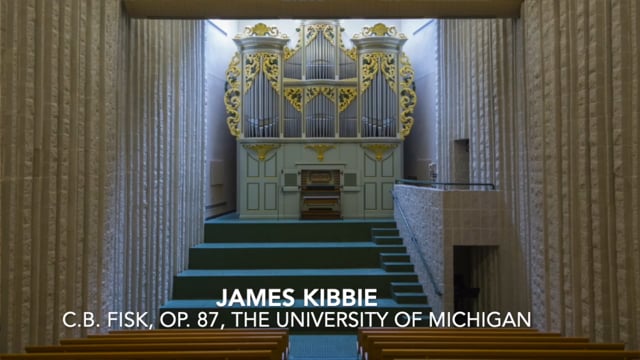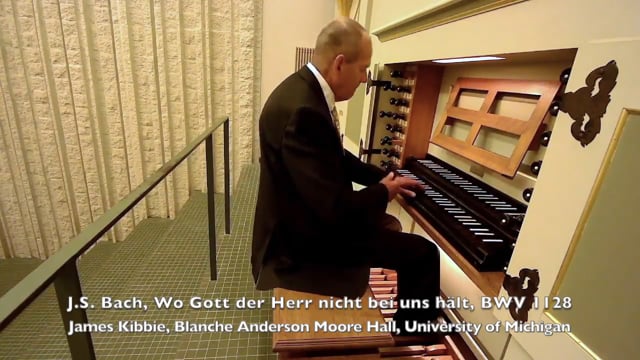James Kibbie plays Bach's Fantasia and Fugue in A Minor, BWV 561, on the Fisk Opus 87 organ (the "Marilyn Mason Organ") at Blanche Anderson Moore Hall, E.V. Moore Building, at the University of Michigan.
Dr. Kibbie will perform the complete organ works of Johann Sebastian Bach in 18 recitals at the University of Michigan from September 2022 through April 2023.
The programs are open to the public, in person or live-streamed, at no charge. Contributions may be made to the James Kibbie Endowed Scholarship fund supporting organ and sacred music students at the university.
The schedule, programs, recording downloads, and additional information are available online at
www-personal.umich.edu/~jkibbie/kibbie-bach.html.







